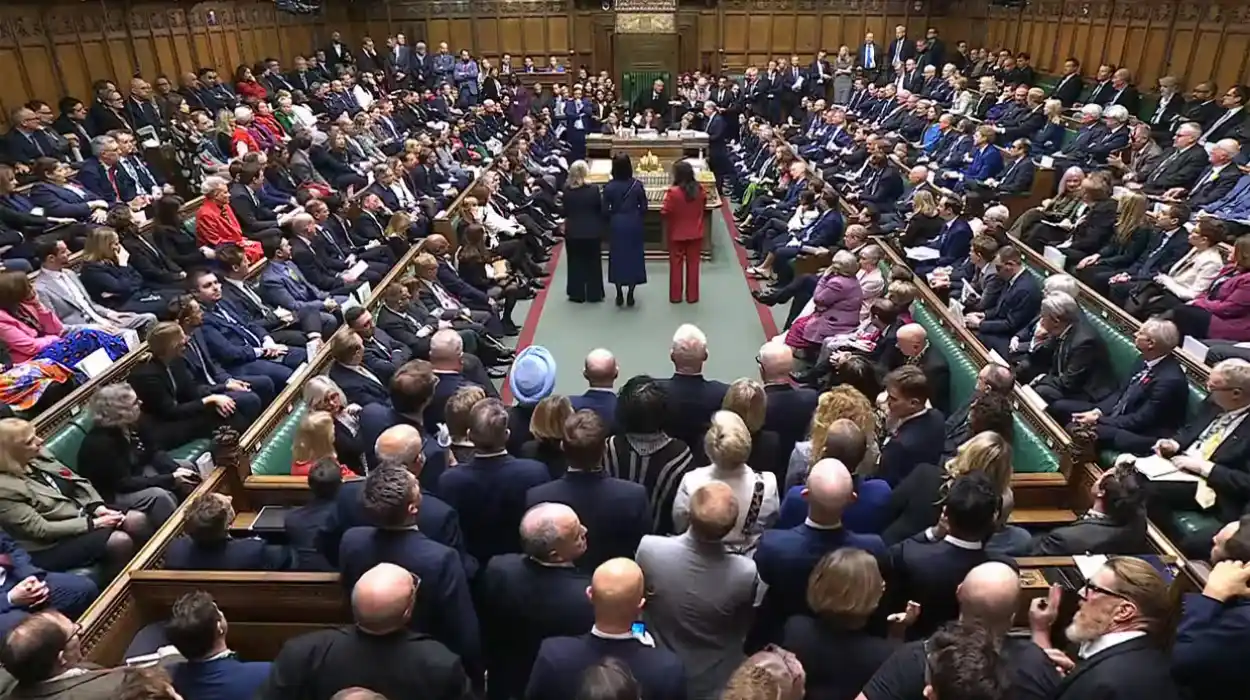London (Parliament Politics Magazine) – More than 60 parliamentarians are pushing for a switch to electronic voting to replace in-person voting, arguing that the current system wastes valuable time and disrupts legislative work.
The combined letter to the leader of the Commons, Lucy Powell was signed by 62 MPs, of which 39 are newly elected Labour MPs, showing the growing frustration of new members with what they consider outdated parliamentary procedures.
As reported by The Guardian, in addition to the new MPs, the open letter also received support from prominent Labour backbenchers like Stella Creasy, John Trickett, and Sharon Hodgson, as well as SDLP’s Claire Hanna and independents Rosie Duffield and Zarah Sultana.
The letter, addressed to Powell as chair of the Commons cross-party modernisation committee, stated that a single vote can take up 162 combined hours if all MPs participate.
The open letter by members of the Commons said, “Spending 15 minutes corralling every MP through two corridors to say aye or no can regularly account for 20% of our working day.”
“When legislation is complicated or contested, with multiple votes, time quickly disappears,” the letter added.
MPs also argue in the letter that, due to time limitations, there is pressure at the time of voting to reduce the number of votes to manage time more effectively.
The letter argued that requiring parliamentarians to physically attend and walk through lobbies offers little value to debates, with online access via parliamentary TV allowing MPs to use that time more effectively to serve their constituents.
Further, the open letter urges the modernisation committee, which was set up in September to review parliament’s working practices, standards, and cultures, to examine electronic voting, including allowing MPs to vote from locations outside the Commons.
The benefits of the electronic voting machines were also pointed out in the letter. It was argued that MPs could balance work and manage their work and caregiving duties while providing more flexibility for colleagues with disabilities and other health conditions.
The letter stated that the change should be part of wider reforms, which include adjusting parliament’s hours with the standard working day, and added, “The moment has come to prioritise time management over tradition.”
Stella Creasy while commenting on the Commons voting system said, “MPs waste hours of the day going in circles because, unlike other parliaments, we don’t use electronic voting to expedite the counting process.”
The modernisation committee of the Commons has recently finished a call for evidence on how to enhance parliament’s working.
Although the views in the letter may reflect the opinion of many MPs, some support physical voting to allow direct interaction with ministers, while whips consider the current system less conducive to rebellion.
In 2022, Jacob Rees-Mogg, the Conservative Leader, warned as leader of the House of Commons that expanding electronic voting could undermine Parliament. He argued that ministers should be physically present to ensure direct engagement and accountability.
E-voting has been adopted in various forms by several countries, mainly for national and sub-national elections.
According to the International Institute for Democracy and Electoral Assistance (IDEA), 34 out of 178 surveyed countries have adopted electronic or internet voting to some extent in their electoral processes.


